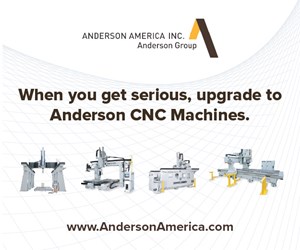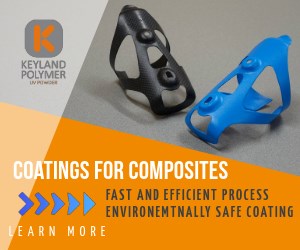Tecniplas publicizes migration test certifications of industrial composite tanks
Tests ensure that the tanks and equipment manufactured by the company are able to come into contact with different types of food and beverages.
Tecniplas tank supplied to Leão, said to be the ;argest monolithic reservoir in Brazil. Photo Credit: Tecniplas
Tecniplas (Cabreúva, São Paulo, Brazil) reports that it has publicized its certifications in total migration (RDC nº 51) and special migration (RDC nº 52) testing of industrial fiber-reinforced polymer (FRP) tanks at Fispal Tecnologica this week, the primary food and beverage show in Latin America.
The first test, total migration, explains Luís Gustavo Rossi, director of Tecniplas, assesses the migration of any substance transferred from storage packaging to food, but without identifying its nature or origin. “The specific migration test quantifies the migration of substances presented on Brazilian Health Regulatory Agency [ANVISA] positive lists, that is, of elements that must meet the requirements of dispersion limits after the tests,” Rossi says.
The FRP tanks and equipment manufactured by Tecniplas with orthophthalic and isophthalic polyester resins, in addition to vinyl ester epoxy resins — in this case, Derakane Signia 411 — are said to meet the maximum limits established in the total and specific migration tests. “With these two certifications, we guarantee even more security for operators and end users of our products,” Rossi adds.
In addition to water, soft drinks and juices, oils and fats (butter and margarine), cereals and flours, dairy products and sauces, Tecniplas’ tanks and equipment are reportedly able to store and participate in the processing of alcoholic beverages in concentrations below 5% — vinegar , cider and beer, for example — and higher, such as wines and liqueurs.
Tecniplas tanks and equipment offer other advantages, the company says, including the presence of an internal surface (liner) that prevents the formation of incrustations for easier maintenance. As well as being non-toxic and harmless, Tecniplas says composites materials are more competitive than the stainless steel normally used in tanks installed in food industries. With the same dimensions and technical characteristics, composite tanks can cost up to 35% less than stainless-steel options.
“Not to mention that they are monolithic, that is, manufactured in a single piece. This means that there are no soldering points, areas normally subject to leaks,” the director of Tecniplas emphasizes, remembering the supply that the company made to Leão Alimentos e Bebidas, a company owned by Coca-Cola. With a capacity of 400 cubic meters, the reservoir is five meters in diameter and 24 meters in length, and it stores water. “It is the largest monolithic composite tank ever manufactured in Brazil,” Rossi says.

















